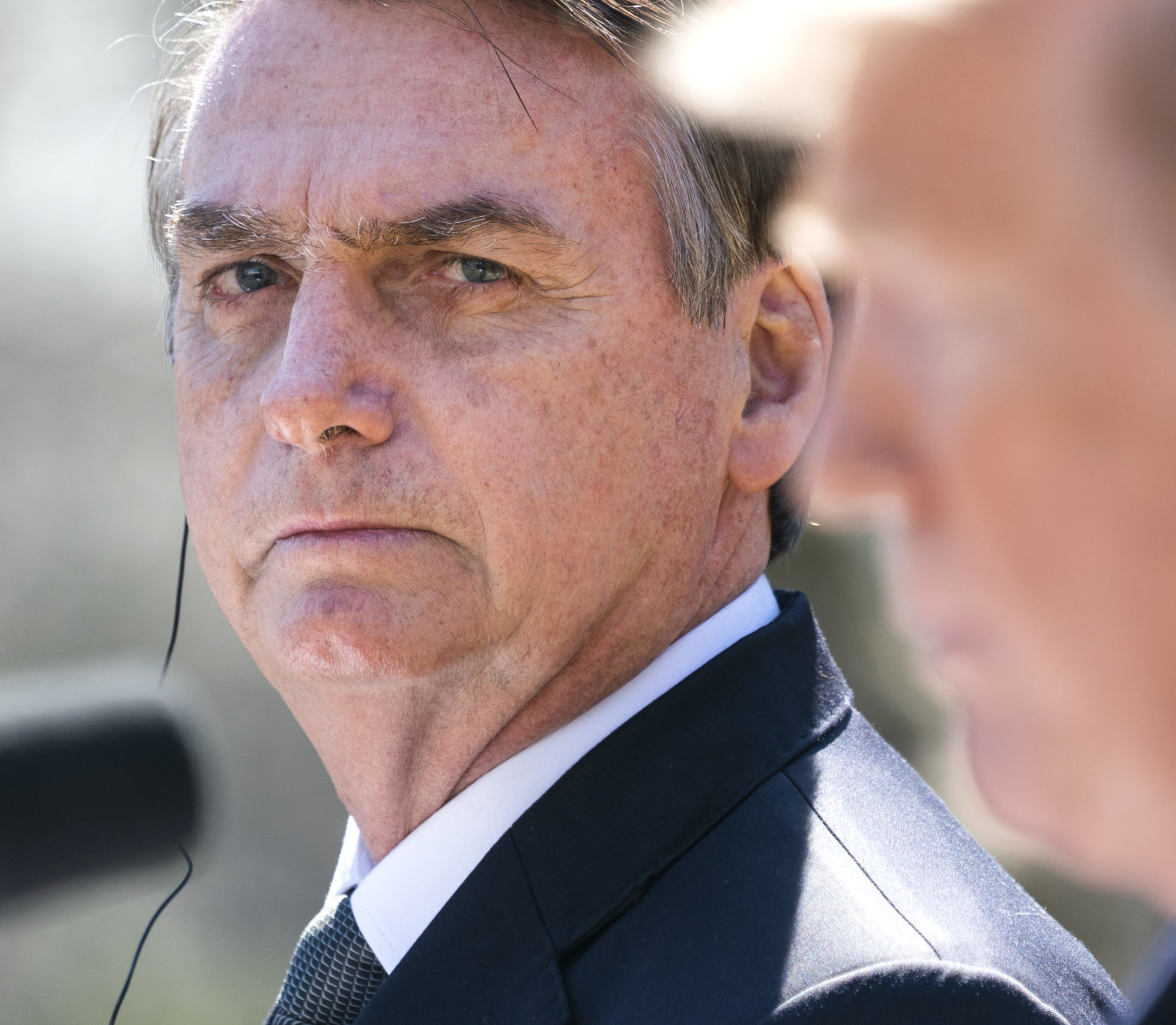Brazil and Trump Face Off Over Bolsonaro
Trump has hit the South American country with tariffs over the treatment of its ex-president.

President Donald Trump is not happy with Brazil. Trump signed an executive order last week that places a total tariff burden of 50 percent on the country’s exports to the U.S. (with some exceptions), affecting billions of dollars of Brazilian goods.
The tariff is a response to what Trump views as Brazil’s persecution of the country’s former president, Jair Bolsonaro, a right-wing populist who positioned himself as one of Trump’s allies in South America. Bolsonaro is currently under investigation by the Brazilian Supreme Court, which suspects him of having planned to coup the government after losing the 2022 Brazilian presidential election. “The Government of Brazil’s treatment of former President Bolsonaro also contributes to the deliberate breakdown in the rule of law in Brazil, to politically motivated intimidation in that country, and to human rights abuses,” reads one portion of the order.
Bolsonaro’s investigation is being carried out by Justice Alexandre de Moraes, who is himself a highly controversial figure and has headed up a long campaign of media censorship in Brazil. Moraes has ordered news websites to take down articles from their websites, ordered social media sites to censor or suspend accounts engaged in spreading what the court deems to be misinformation, and even jailed people for engaging in online speech that the court deems unacceptable under Brazilian law.
But Moraes does not seem impressed by Trump’s economic pressure campaign. On Monday, the judge dug in, placing Bolsonaro under house arrest for allegedly violating the terms of the court’s restraining orders. (Bolsonaro was prohibited from using social media, a stricture Moraes argued he violated when he spoke to supporters at a rally via a video call on his son’s phone.)
This is not the first time Moraes has been the target of American ire. In 2024, Moraes went after Elon Musk’s recently-purchased X after Musk accused him of “betraying the constitution and people of Brazil” by ordering the social media site to censor some of its users’ accounts. When X refused to comply, Moraes blocked the site from the Brazilian internet and levied heavy fines on the company until it complied with the court’s orders. Musk was endangering Brazilian citizens by allowing “the massive spread of disinformation, hate speech and attacks on the democratic rule of law, violating the free choice of the electorate, [and] keeping voters away from real and accurate information,” the judge said.
Musk defied Moraes and the Supreme Court for months, but eventually was forced to make up with the court. X paid out millions of dollars in fines, appointed a legal representative in Brazil and banned the accounts Moraes accused of misinformation and antidemocratic speech in return for having its site unblocked.
That episode landed Moraes on the U.S. government’s sanctions list under the Magnitsky Act. Now, however, the Trump administration is going after not just Moraes personally but the entire Brazilian economy in an attempt to influence the country’s left-leaning government to change course. The tariffs, which took effect on Wednesday, will apply to about 36 percent of Brazilian exports to the U.S., or about 4 percent of Brazil’s total exports, according to government estimates.
Trump’s tariffs will fall very heavily on Brazil’s coffee industry, which provides nearly a third of American coffee beans. Other agricultural exports will also be strongly affected. In contrast, many high-value manufactured goods, such as aircraft components, have been granted tariff exemptions.
So far, Trump’s economic offensive has not provided the results he hoped for. Brazil’s President Lula da Silva has said that he has no interest in reaching out to an administration he views as seeking to humiliate him. “One president can’t be humiliating another,” he said, referring to Trump’s treatment of Ukraine’s Volodymyr Zelensky and South Africa’s Cyril Ramaphosa. “I respect everyone and I demand respect.”
Instead, the Brazilian president has been reaching out to his fellow members of BRICS in an attempt to shore up international support for Brazil’s position. “What President Trump is doing is tacit,” Lula said. “He wants to dismantle multilateralism, where agreements are made collectively within institutions, and replace it with unilateralism, where he negotiates one-on-one with other countries.”
He took the first step Thursday by calling Prime Minister Narendra Modi of India to discuss the tariff issue—something India, also the recent target of a 50 percent tariff from the Trump administration, is deeply concerned with. He has also indicated that he will speak with Chinese premier Xi Jinping and Russian president Vladimir Putin.
Lula’s resistance to American pressure is already partly a result of Chinese influence in the country. Apart from the political cooperation the president has cultivated with the Chinese government, Brazil has also accelerated its economic integration with the Asian power. Brazilian exports to China surpassed the country’s exports to the U.S. over a decade ago, limiting the impact American economic pressure can exert on Brazil’s market. Brazen attempts by the U.S. to manipulate Brazil’s domestic politics with tariffs make it even less likely that Lula or his successors will be interested in winding down their commercial ties with China in favor of American trade.
“This now is not a small intervention,” Lula said. “It’s the president of the United States thinking he can dictate rules for a sovereign country like Brazil. It’s unacceptable.”
The post Brazil and Trump Face Off Over Bolsonaro appeared first on The American Conservative.
